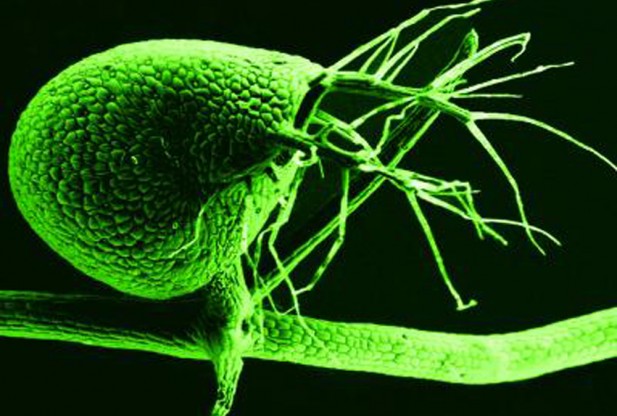MI weekly selection #23
MI weekly selection #23

“Junk” DNA in plants not needed to remain healthy
So-called junk DNA is just that — junk, according to a study by researchers at the University of Buffalo in New York. In a study of the carnivorous bladderwort plant, they found that the part of the genome not responsible for coding proteins in plants is simply not needed for the organism to remain healthy. Researchers, however, are still exploring why some organisms have a lot of junk DNA while others don’t.
E. Ibarra-Laclette et al (2013) Architecture and evolution of a minute plant genome Nature DOI: 10.1038/nature12132
Hearts of older mice become healthier with hormone treatment
Researchers have reversed the effects of aging on the hearts of elderly mice using a blood hormone found in abundance in younger mice. The protein, called growth differentiation factor 11, declines in older mice, causing heart tissue to stiffen and thicken. Increasing the level of GDF11 in older mice reversed the damage.
F.S. Loffredo et al. (2013) Growth Differentiation Factor 11 Is a Circulating Factor that Reverses Age-Related Cardiac Hypertrophy Cell DOI: 10.1016/j.cell.2013.04.015
Researchers used Einstein’s theory to discover new planet
Researchers used Einstein’s general theory of relativity to discover a new planet for the first time. Using the “beaming” effect, astronomers have found Kepler-76b, which they’re calling “Einstein’s planet,” in the constellation Cygnus about 2,000 light-years from Earth. The planet has twice as much as mass as Jupiter and is 25% larger, researchers said.
S. Faigler et al (2013) BEER analysis of Kepler and CoRoT light curves: I. Discovery of Kepler-76b: A hot Jupiter with evidence for superrotation arXiv 1304.6841
Proofs: Infinite number of primes are paired and the odd Goldbach conjecture.
A mathematician from the University of New Hampshire has come up with a proof to show that an infinite number of primes are paired. Yitang Zhang’s proof shows the near-neighbor of the primes, however, may be up to 70 million numbers away. Also Harald Helfgott has proved a related problem: the odd Goldbach conjecture, which states that every odd number above 5 is the sum of three primes.
Mild brain shocks can increase math skills
Stimulating the prefrontal cortex with mild shocks can improve mathematical ability, scientists say. Researchers at the University of Oxford have shown that people who received transcranial random noise stimulation performed better and faster. Six months later, they could still do sums 28% faster than a control group. Scientists hope the technique could help rehabilitate stroke patients or help children who have learning difficulties.
A. Snowball et al (2013) Long-Term Enhancement of Brain Function and Cognition Using Cognitive Training and Brain Stimulation Current Biology DOI: 10.1016/j.cub.2013.04.045